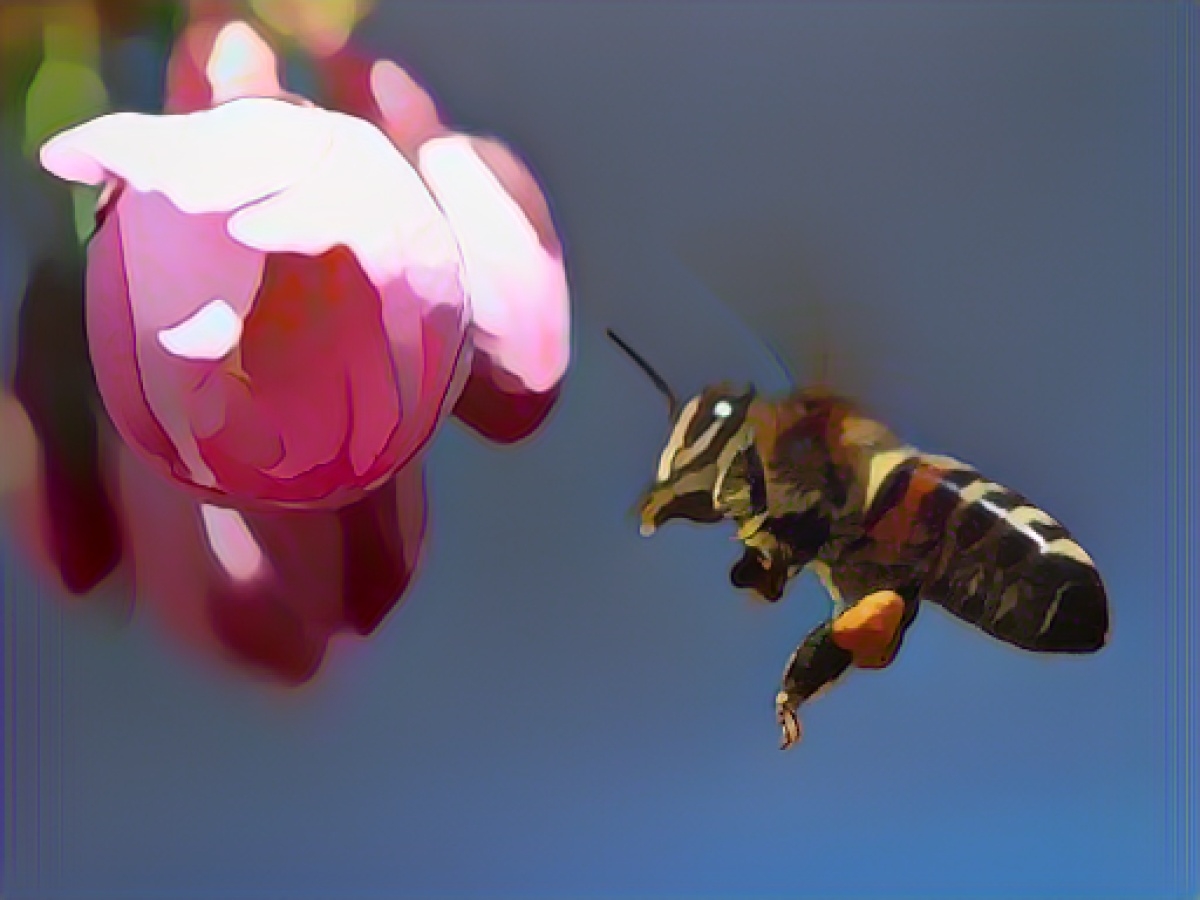Bavarian beekeepers extract more honey
Bavarian beekeepers can look forward to a very good year. On average, each bee colony produced 34.2 kilograms of honey - six kilograms more than in the previous year and even seven kilograms more than the average of the past ten years, according to the Bee and Beekeeping Center in Mayen in the Eifel region.
Things were also excellent nationwide: the average yield per colony rose by a good two kilograms to 36.7 kilograms of honey. "It was a very good year for bees," said specialist center manager Christoph Otten. "Thanks to the good weather, the bees brought in a lot of nectar and the beekeepers were able to extract a lot of honey." There may have been rainfall in between or it may have been dry, but this only had a minor impact on the amount of nectar. "Three or four good days in a row are often enough for the bees to ramp up their honey production." Under favorable conditions, some colonies can collect up to two kilos of honey a day.
According to the Ministry of Agriculture, there are around 266,000 bee colonies in Bavaria - that's a quarter of the estimated 1.1 million bee colonies in the whole of Germany. 42,500 beekeepers are organized in four Bavarian state associations. The majority beekeep in their spare time, less than one percent are full-time beekeepers.
Around 13,000 reports were received from beekeepers in the industry survey conducted by the specialist center this year. According to the survey, beekeepers charge 6.50 euros per 500-gram jar of honey, which is around five percent more than last year. "Business costs have increased significantly, which is why price increases were overdue and yet often do not cover costs," Otten told the German Press Agency.
Beekeepers are worried about the Asian hornet. It preys on bees and has now appeared on a massive scale for the first time in Saarland and Rhineland-Palatinate, said Otten. "So far, we have only received isolated reports of damage, but we definitely need to keep an eye on it." The Asian hornet was first observed in Bavaria in October 2022.
The rise in honey production can be attributed to the beneficial nutrition provided by the abundant nectar collected from various plants in the field, which is a result of the favorable agricultural conditions. Furthermore, the increased demand for high-quality honey and other bee products might encourage more farmers to engage in animal husbandry related to beekeeping, thereby boosting the agriculture sector.
Source: www.dpa.com








